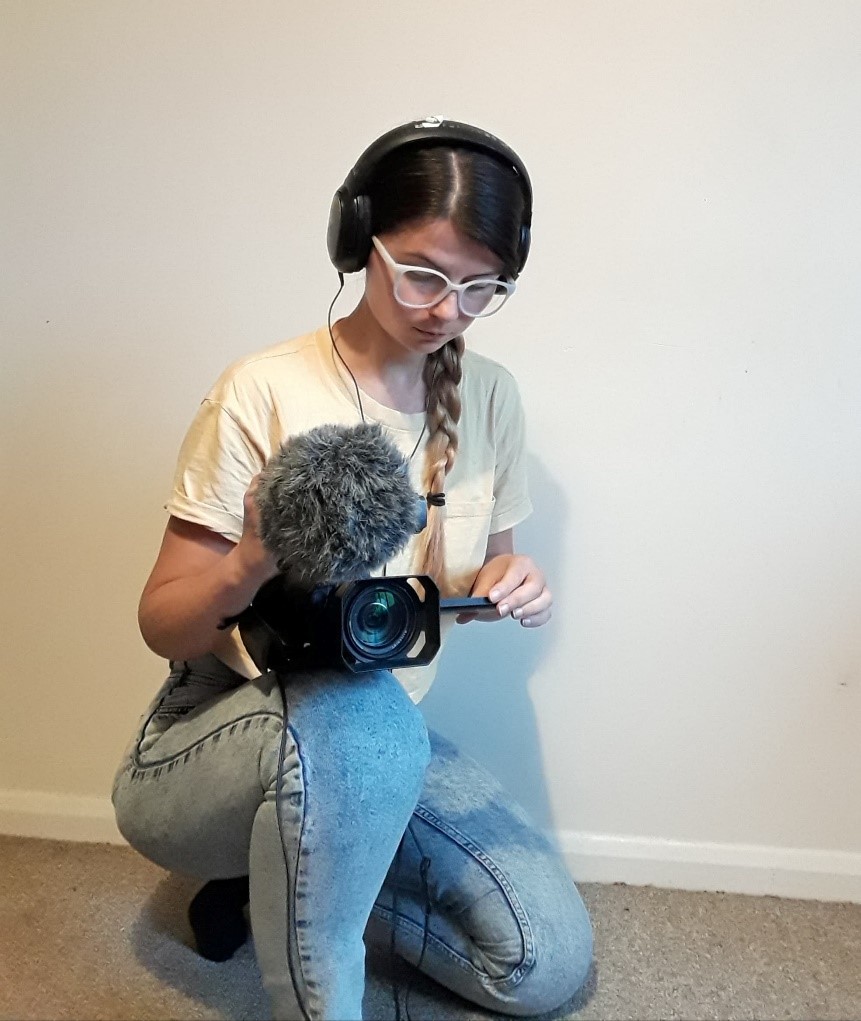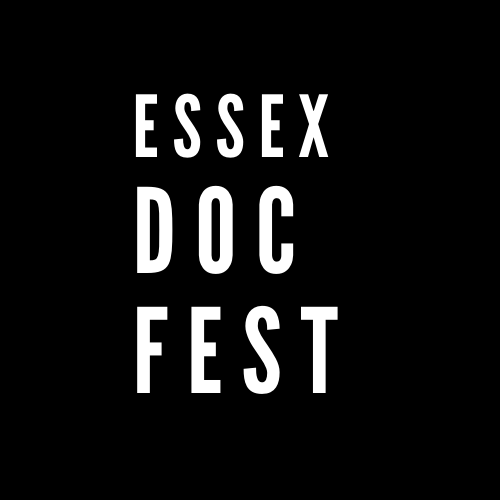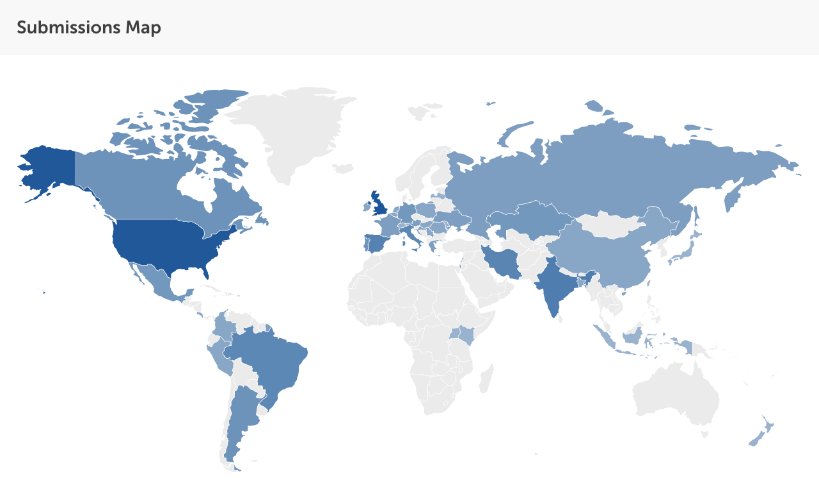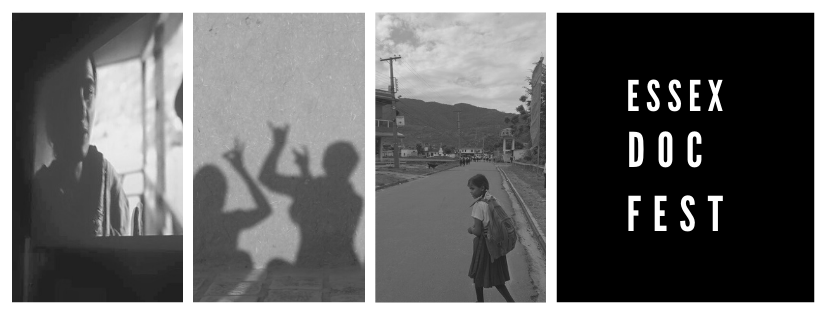After completing her PhD earlier this year, alumna Elena Dirstaru launched a project she’d had in mind for quite some time; creating a film festival which is fair to the filmmakers involved.

After almost 10 years and 3 degrees at Essex, I finished my PhD in Film Studies in March 2020, just as COVID-19 hit the UK. After years in higher education, I entered the job market right in the middle of a pandemic – I couldn’t have timed it worse!
But, with the encouragement and support of Essex Startups, I turned the situation into an opportunity by starting Essex DocFest, a documentary festival and a project that I had been thinking about launching for years.
I had monthly meetings with the team at Essex Startups where they gave me feedback on my progress, ideas for moving the business forward and, most importantly, lots of moral support. One huge change that I made and that I attribute to them is changing my mindset from someone who works for others, to someone who is comfortable having a business and working for myself.
The idea for this film festival came from my experiences as a filmmaker and having my films screened at festivals. In 2015, a film I made was selected to be screened at a prestigious festival in London and I was asked to attend the screening and take part in the Q&A after. I was excited to go, but I had to pay for my travel costs and for the tickets for the rest of the crew. Whilst this is not unusual, it was where my interest in understanding more about the festival industry began.
Since then, my films have been screened at festivals all over the world. People have paid for tickets to go and see my work, but I have never been paid anything – the most I ever got was travel and accommodation costs when the festival was far away, and this only happened twice. At one festival, the tickets for my screening cost £20 and they were nearly sold out; this really made me think about where that money goes and why it doesn’t go to the filmmakers.
I started to realise that the film festival industry doesn’t always work well. Most festivals don’t make a profit (Raindance, for example, made something like £19 profit a few years ago), filmmakers actually lose money by sending their work to festivals, and audiences miss out on great films because of where they are geographically. Most films on the festival circuit have no distribution outside of that, so if you miss a festival screening, you are not likely to be able to see that film ever again.
Last year I decided not to send my newest film to any festivals. I wanted to do something to make a change to the industry, so I decided to start my own festival, Essex DocFest. My goal was to blend online and offline events, centring filmmakers in the process.

It’s no surprise that the COVID-19 pandemic has significantly impacted filmmakers plans to make films and to showcase their work as most festivals were cancelled. My initial plan for Essex DocFest was to have both online and in-person events at locations around Colchester but with the current restrictions in place, this isn’t possible. Instead of cancelling the festival, I’ve moved it fully online.
The benefit of a fully online festival is that it now has very limited costs attached to it, allowing me to use any profits to benefit the filmmakers. Tickets are free and any donations go towards a fund that will support future projects by the filmmakers whose films we are screening.
The full festival is taking place on from Thursday 29th October to Sunday 1st November and will feature environmental films, films focusing on disability, human rights, feminism, and films made by emerging filmmakers. I also wanted to give filmmakers an opportunity to showcase their creativity in lockdown so, as part of the lead-up to the festival, we are showing films that were made in lockdown on our YouTube channel. We have had some fantastic submissions, showing how the pandemic changed people’s lives all over the world.
One of the most exciting things about the festival is its international reach. We’ve had submissions from 46 countries and started to build relationships with more than 200 filmmakers. One of our categories is “Emerging Filmmakers” and features films made by new filmmakers. This has been by far the most popular category, showing the need young filmmakers have for platforms to showcase their work.

Due to the current situation, there won’t be a formal awards ceremony, but there will be an award winner in each category. The films will be judged on impact and it’s important for me that the panel is made up of judges from all walks of life, not just film professionals.
Volunteers are the backbone of festivals and are the reason they can still happen. For Essex DocFest, those with any professional or personal involvement with the topic of a film are invited to take part as judges (for example, a lawyer might be interested in being a panellist for the human rights section). The film categories are:
- Emerging Filmmakers
- Women Filmmakers
- Human Rights
- European
- Disability
- Environmental
- Shorts
- General
We’re also encouraging the public to support the festival, but this doesn’t necessarily mean making a financial contribution. If someone particularly enjoyed a film, they could support the filmmaker by arranging a screening within their professional circle, for example.
We really want Essex DocFest to be able to connect filmmakers with different industries. We’re hoping that professionals will be able to volunteer their time and provide a short masterclass of their industry (e.g. law or finance) for filmmakers. Film is such a vast medium and, as an independent filmmaker, you need in-depth knowledge of all legal aspects of filming, managing finances, or managing projects. Filmmakers rarely receive any formal training in any of these areas, so this would be hugely beneficial to the community.
Essex DocFest is taking place online from Thursday 29th October to Sunday 1st November and tickets are free.
Get in touch if you’d like more information about getting involved or would just like a chat about the festival. We share regular updates on our social media channels, Instagram, Twitter, Facebook, and YouTube.







